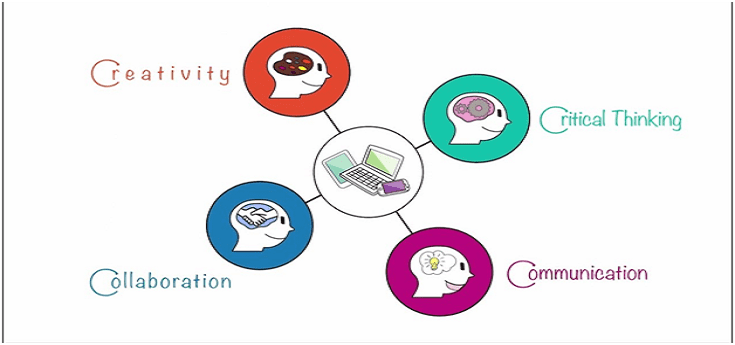The C’s Of Education-Captivate Students With Videos

The C’s Of Education-Captivate Students With Videos
The
classroom of today is different from the one of the past. We don't rely solely
on books or syllabi any longer. We are living in a time of rapid technology
advancement, which some refer to as a technological or digital revolution.
Learning has changed as a result of this, as have the learning instruments we
use in the classroom. Interactivity in the classroom is more popular than ever
before. Students can supplement their learning with movies, photos,
presentations, multitouch screens, computers, tablets, and even phones.
We
talk a lot about 21st-century skills in education, and the four Cs of
21st-century abilities get a lot of attention: communication, collaboration,
creativity, and critical thinking.
- Critical
thinking
- Creativity
- Collaboration
- Communication
The
usage of video in the classroom has become a widespread trend in today's
education. Students and teachers both benefit from video. Above all, video is a
valuable resource that helps teachers cultivate the 4 C's of education.
Critical
thinking with video
Teachers
are urged to use video to implement the flipped classroom method, in which
students study course material at their own pace and then discuss various
aspects of the curriculum with their teacher and peers during class time.
Students can be divided into groups and asked to summarise the video they just
watched, share their thoughts on the issue, and ask questions about it. All of
this helps them improve their critical thinking abilities.
Creativity
and video
Many
youngsters are born storytellers, and they frequently come up with novel
solutions to problems. When you offer kids a tool, they need to be able to make
a movie, tell a tale, express themselves, share in many ways, and collaborate
with their peers.
Collaboration,
video, and communication
In
today's world, video is a must-have educational tool. Students who are unable
to attend classes in person, such as those with impairments, can virtually
attend lectures, collaborate, and communicate with their classmates in real
time using video. Students are motivated and engaged when they have access to
video, according to research. Students can be inspired to work together to
solve a real-world problem by watching an inspiring video during class. Video
can also help to improve communication between teachers and parents. Teachers
can share video clips of a child reading or interacting with peers in a
collaborative context, for example.
In
conclusion
The
four Cs of education are the abilities that children require to be successful
in life. We need to make sure that the technology we employ to help kids learn
is motivating. A safe, familiar environment is a compelling learning
environment, and we feel all children will recognise today's movie. For further
information, please contact us.
Visit Our Website Now:
https://www.radiancevisiongroup.com/
https://www.radiancevision.co.in/





